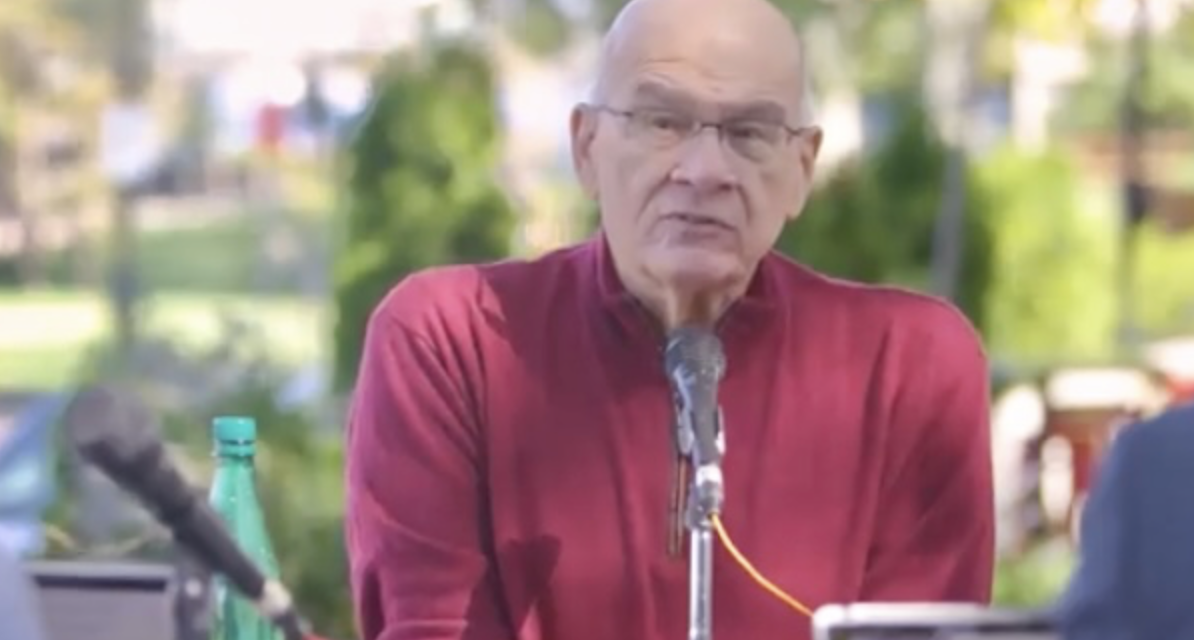The death today of beloved pastor, preacher and teacher Dr. Timothy Keller at the age of 72 brings to mind the oft-quoted observation of his mentor and fellow pastor, Dr. David Martyn-Llyod Jones:
Christians die well.
“I think the way we go out of this world is very important and this is my great desire now that I may perhaps be enabled to bear a greater testimony than ever before,” Dr. Jones once observed. “Death is not something to slip past, it should be victorious.”
He was alone with Kathy, his wife of 48 years. His son Michael tweeted that he kissed Kathy on the forehead and then breathed his last breath.
His final words were: “There is no downside for me leaving, not in the slightest.”
When Dr. Keller announced his cancer diagnosis back in 2021, he said, “It is endlessly comforting to have a God who is both infinitely more wise and more loving than I am. He has plenty of good reasons for everything He does and allows that I cannot know, and therein is my hope and strength.”
Historians often say that it takes years to truly assess the impact and legacy of a president, and that’s often true. The perspective of time allows for a more thorough, objective and less emotional evaluation of leadership. In the coming years, the full force and influence of Tim Keller’s ministry will be known. Yet even hours after his death, it’s not too soon to declare him a theological lion of his time, a man whose words and teaching ministered to millions and whose efforts will long proceed him.
Keller’s body of work is beyond impressive: 31 books, over 1,500 sermons (all available at no charge), as well as hundreds of articles and several notable interviews and conference talks. He had a lot of brilliant things to say and always found engaging ways to say it. He was famous for advocating for a “third way” – a habit that endeared him to many and frustrated some.
But even more impressive than his words or sermons was his Christian witness. There was no scandal, no skeletons in the closet. Happily married to Kathy for 48 years, the couple had three sons. Before Tim pastored an urban church, he shepherded a rural one in Hopewell, Virginia, for eight years. He was a low-key, cerebral clergyman who chose his words carefully and who didn’t waste the words he chose. There was an intensity to him, but it wasn’t borne of ego but an earnestness to spread the Gospel of Jesus Christ.
If there was any ambition, it was to point people to the Lord, not to himself. He didn’t start writing and publishing books until the last few years of his pastoral ministry. And it should be noted, he didn’t even want to be “the guy” to start Redeemer back in 1989. He tried to recruit two other pastors to do it, both of whom declined. Keller reluctantly gave up a comfortable teaching position at Westminster Theological Institute to launch the fledgling New York City congregation.
Neither fame nor fortune were of interest to Dr. Keller. When I met him for the first time back in 2012, I broached the idea of writing a biography on him. He dismissed it. “Feels like it should be an article, if anything,” he said to me.
I had the privilege of being in attendance for Tim’s final sermon as senior pastor of Redeemer back on June 25, 2017. It was a lovely Sunday morning, and when Tim stepped forward to preach from the stage of the Ethical Culture Meeting House, a more then 100-year-old brick-and-limestone building adjacent to Central Park, nearly every seat was taken.
The first thing that struck me was how plain the auditorium and stage were that morning. No flowers and no fanfare. Just a music stand for Dr. Keller’s notes and a final 40-minute sermon that held everyone’s attention from beginning to end.
“If you believe in Jesus, fear not,” Dr. Keller concluded. “Hold on and look up. Grasp the Gospel.”
Reverend Dr. Timothy J. Keller not only encouraged us to do just that – but he showed us how it was done.






